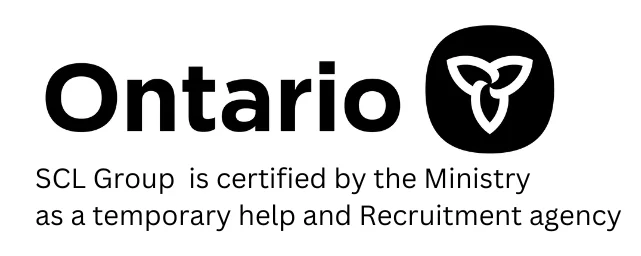Managing Through a Stressful Event
I wanted to share a little bit of a journey—not just my own experience, but what so many of us as caretakers feel on a day to day basis. We don’t ever attach a title to it, but we experience it routinely. We go on autopilot, doing what needs to be done, because there is so much that we experience, every hour, every shift, every day. And now, when the storm calms, we’re left with everything we pushed aside just to get through it.
I know I’m not alone in this, so if you’re feeling it too, here’s what helped me and what I saw my colleagues struggling with as well.
Learning to Feel Safe Again
For so long, it felt like danger was everywhere. My body didn’t know how to relax—I was still bracing for the next code, the next impossible shift. Coming home didn’t always help, because the stress followed me. I had to find ways to tell myself, It’s over. You’re safe now.
- I started small—breathing deeply between patients, taking one extra minute before stepping out of my car after a shift.
- I needed to feel safe, so I wrapped myself up in a weighted blanket, dimmed the lights, and gave myself permission to shut the world out.
- Some of my coworkers found their own rituals—one had a “decontamination shower” where she visualized the stress washing away, another sat in her car and listened to music before going inside. We all needed something to break the cycle.
Making Space to Process It All
We see too much. Too many losses, too many impossible choices. At first, you don’t want to think about it—I just wanted to keep moving. But the more I ignored it, the more it crept in, usually at night when things got quiet.
• I started journaling—not long, just a sentence or two. Some days, all I could write was “:That was hard. I’m still here”.
• Some nurses turned to art, some to music. One of my friends started cooking elaborate meals—not for anyone else, just for herself, just to create something instead of witnessing loss all the time.
• The hardest part? Letting myself talk about it. Finding people who actually understood—not just “thank you for your service” but “yeah, I saw that too, and it was awful.” Those conversations helped more than I expected.
Figuring Out a New Normal (although cliche, you need one)
For years, life was work and survival. Normal routines disappeared. Even after things “settled,” I didn’t know how to just live in a “regular” way.
• I had to build structure again, one tiny piece at a time. Drinking a glass of water in the morning before coffee. Taking five deep breaths before checking my phone. Giving myself permission to not engage in news or work talk 24/7.
• I noticed a lot of us struggled with this—what do we do when there’s no crisis? Some buried themselves in work, some couldn’t function at all. The balance is hard.
• The best advice I got— start with one small thing that’s just for you. A quiet breakfast. A slow stretch before bed. Something steady in a world that still feels unpredictable.
Learning to Rest Without Guilt
This was the hardest part. I spent so much time running on empty that stopping felt wrong, like I was failing somehow. I wasn’t. None of us were.
• At first, I felt like I had to be productive on my days off—cleaning, errands, making up for lost time. But I was exhausted. Eventually, I let myself sleep in, sit in silence, and not feel bad about it.
• A coworker told me she still felt like she had to check her phone every five minutes, just in case. She wasn’t even on call, but her brain hadn’t caught up yet. That’s when I realized I wasn’t alone in this.
• The truth is, we weren’t meant to function in survival mode forever. If your body is tired, it’s asking for something. Rest is part of recovery.
Finding People Who Truly “Get It”
No one outside the healthcare world really understood what it was like.
• Some of my closest friendships now are with nurses I worked with during that time. We don’t always talk about it, but we don’t have to—we just know.
• One of the biggest shifts for me was realizing I didn’t have to explain myself to people who didn’t get it. If someone minimized what we went through, I stopped trying to make them understand. I put my energy into those who did.
• Therapy helped. Support groups helped. Even just grabbing coffee with a coworker who was also struggling helped. Connection made a difference.
Handling the Triggers That Sneak Up on You
Sometimes it’s the smell of hand sanitizer. Sometimes it’s an overhead page, or the sound of an alarm. I didn’t expect the way certain things would hit me.
• When it happened, I learned to pause. Okay, I’m not in that moment anymore. I am here. I am safe.
• Some nurses found comfort in routines—holding something textured, taking deep breaths, stepping outside for fresh air.
• The hardest part? Not blaming myself for reacting. We went through trauma. These feelings are normal.
Learning to Be Kind to Myself
I spent a lot of time wondering if I did enough, if I made the right choices, if I should have done more. A lot of us did. But the truth is, we did the best we could with what we had.
• Instead of spiraling into guilt, I started reminding myself: I showed up. I cared. That was enough.
• I stopped measuring myself by how much I could endure. My worth isn’t in how much I sacrifice—it’s in who I am, even outside of being a nurse.
• Healing isn’t about going back to who I was before. It’s about carrying what I’ve been through with less weight.
This Is What I Know Now (We are humans, not just a healthcare worker)
This applies to each of us, whatever capacity you find yourself in, when life’s circumstances hit, my hope is that you absorb some of the information in this our Blog to get to the next phase.
If you’re still carrying the weight of it all, you’re not alone. Healing doesn’t mean forgetting—it means learning how to live with it in a way that doesn’t consume you.
Start small. One deep breath. One moment of rest. One step toward feeling human again. You deserve that much. We all do.




